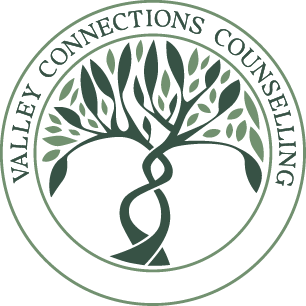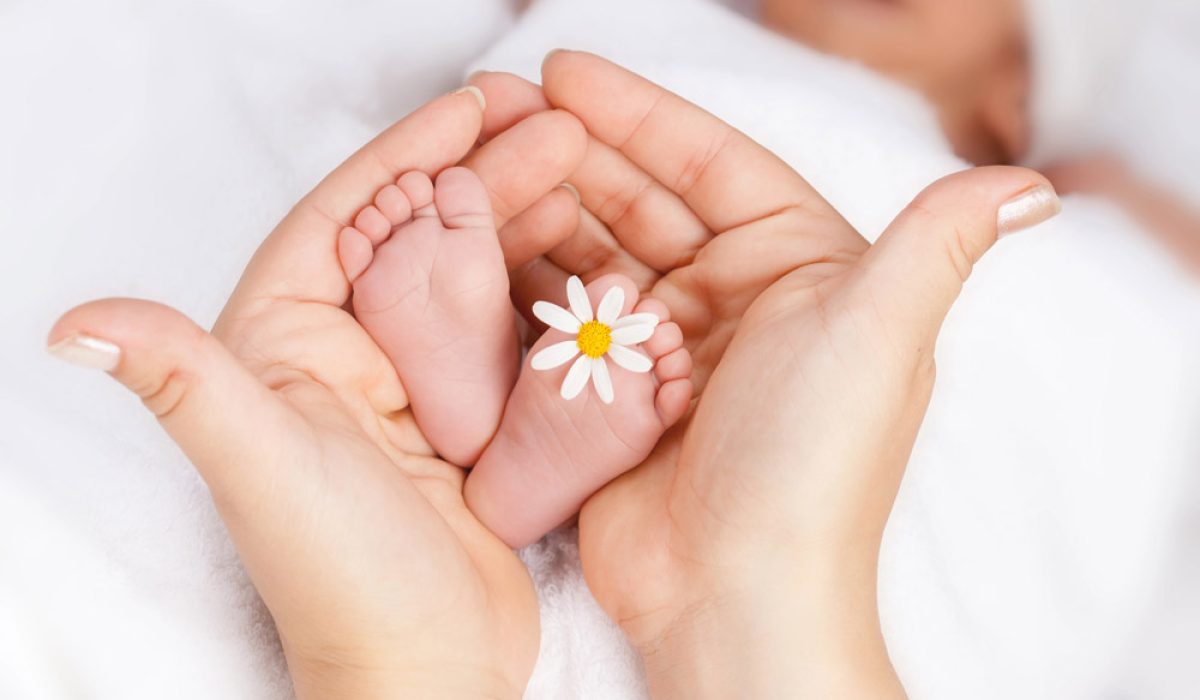My Birth Story
Monday, April 23, 2018 12:03pm
This morning I sat in the quiet of my office looking through baby pictures of my daughter. Those photos, taken over 5 years ago, show a beautiful, healthy baby girl, smiling and cooing. They show her father snuggling with her, showering her with kisses, and playing games of “upsy-downsy” and “jiggy-jiggy”. And they show me; her mother. I’m smiling in these photos, laughing, making eye contact with the my new Love. But these pictures don’t show what I remember about this time in my life. There are no shots of the countless diaper changes I conducted while uncontrollably sobbing; no flashes of the endless nights I spent sitting up in bed in between my sleeping partner and infant silently crying. These pictures don’t reveal the fear, confusion, and loneliness that dominated my world in that first year of my daughter’s life. That first year, when I became a mother, something I’d always wanted to be.
My birth story, if told from the eyes of an onlooker, is perhaps typical, even beautiful, but certainly not traumatic. Not unless I tell it. Not unless I tell you about what went on in my mind for those 12 endless hours. Not unless I tell you about what happened for 12 months after delivering my baby. Perhaps this is why, despite being a Mental Health Professional myself, I missed the trauma in my story. And I missed getting help until months had gone by. Perhaps this is why my Care Providers missed the trauma in my experience also.
My daughter was born in my home at 10:42 on an October morning in 2012. My partner and I prepared for her birth by hiring a Doula and taking Hypnobirthing Classes privately with her. For anyone who’s ever heard a woman talk about giving birth, they’ve likely heard enough about the pain experienced to elicit at least a small amount of anxiety. This might be what appealed most to me about the Hypnobirthing theory, which suggests that labour and birth is not painful, but rather that we have ascribed pain to the experience as a society, and this creates fear. Perhaps it was how I was taught this birthing method, or my desperate need to believe that my labour could be pain-free, but I convinced myself that in order to have a “successful birth”, or an “easy” birth as hypnobirthing so frequently states, I would have to not experience pain at all (did I mention that I am a people-pleasing perfectionist at my core?).
Well, I went into active labour at 9:30pm and by 10:30pm I was so engulphed in waves of pain that I felt someone was ripping out my organs and breaking my spine. I lost nearly all ability to speak, so for the next 12 hours, I spoke only a few words. One of my midwives had told me earlier that my baby was “sunny-side up” which I later learned was a cute way of saying that she was in a posterior presentation, which I found out can lead to some of the most painful contractions. Since my Doula was present, and I desperately wanted to please her as a good hypnobirthing student, I tried dutifully, though in vain, to use the tools she’d taught me. But there was so much pain and as the hours passed, I was so exhausted I could not hold my own head up. My nausea was constant, something else I did not know could be a part of the birth experience, and this completely inhibited by ability to eat or drink anything, which further compounded my exhaustion. My body no longer felt as though it belonged to me, and I had no control, my contractions coming with such frequency and intensity that I was thrown to the floor.
By the time a few hours had passed, I could no longer stand, and had to crawl from room to room, making my humiliation complete. At some point, I broke down, and feeling incredibly ashamed, whispered to my partner between contractions that I wanted to go to the hospital. He relayed this information to my Doula, who, sadly, following what she believed to be best practice, ignored this request at this time and the two other times I begged to go to the hospital during those 12 hours. Just before Transition, I remember having the thought that I wished I was dead, which led to a further wave of shame and guilt, since of course, if I was dead, this also meant that my baby would be dead. My daughter was not even in my arms yet, and I was failing her as a mother.
During this entire experience, I did not cry out. In fact, because of the difficulty I had speaking, and my desperate need to “succeed” at a pain-free, “easy” hypnobirth, the photos of my labour and delivery show me appearing to be asleep much of the time, or in a state of deep calm. This further compounded my situation since, in addition to being unable to voice my terror, my care providers could not see the terror evidenced on my face or in my body language.
Most definitions of trauma focus on the event itself, such as the Oxford’s dictionary definition of trauma as being “a deeply distressing or disturbing experience.” Or Tara Brach’s definintion: “Trauma is when we have encountered an out of control, frightening experience that has disconnected us from all sense of resourcefulness or safety or coping or love”. Peter Levine defines trauma in this way: “Trauma is not in the event itself; rather trauma resides in the nervous system.” It affects the body, emotions, mind, spirit, and our capacity for relationships. The three components that seem be present in trauma include that: 1. The distressing/disturbing experience was unexpected. 2. The person was unprepared. And 3. There was nothing the person could do to stop it from happening. Check, check, and check.
Birthing my daughter was, to me, a terrifying, lonely experience, in which I was a prisoner of my mind and body; in which there was no hope and no way out. I knew that since I was not supposed to be experiencing pain, the level of pain I was in meant that I was not going to survive this experience. And I knew that since I could barely speak, no one knew that there was something terribly wrong, so there would be no help, no rescue, no end to this terrifying experience. While labouring to become the mother I’d always wanted to become, I believed that I would not survive long enough to hold my baby girl.
But I did survive. In those first few hours after my daughter was born, the powerful effects of oxytocin saved me. I felt nothing but love and peace and deep connection. But when that powerful hormone waned, I sat in the dark of our bedroom replaying her birth, feeling frozen in fear once again, tears falling in silent unending streams down my cheeks. Weeks passed like this where I could not sleep for more than 20 minutes at a time. My daughter thrived, and I was deeply in love with her; a love I can still barely explain. I did not, as some of my Mental Health providers later insisted, feel any resentment toward her, or a lack of connection, which could have been indicative of postpartum depression. What was wrong with me? I questioned myself daily, knowing that although I met the criteria for depression, there was something darker stirring within me. My baby was fine, my labour was seemingly uneventful – no emergency c-section, no horror story of hemmoraging, no nights with my baby in a NICU away from my arms. So what was wrong with me?
I now know that I may have been asking the wrong question. It wasn’t “what’s wrong with me.” It’s what happened to me. It’s how I adapted to cope and survive with what happened. During my labour, overtaken by unexpected and unparalleled pain and terror, I had a flight or fight reaction which flooded my system with adrenaline and cortisol which overrode any pain-relieving benefits of oxytocin that would have been in my system while I was labouring. This likely also lengthened my labour, but explains why my pushing phase was relatively short, since adrenaline is actually helpful at this stage of labour. I adapted to my intense fear by trying to appease and please my care providers, especially after my request to go to the hospital was ignored not once but three times. This is how I adapted to cope and survive.
After about a year, I realized that I had been experiencing PTSD, which has 5 criteria: A. Being exposed to the perceived threat of death, B. Intrusion symptoms, C. Persistent avoidance of stimuli associated with the trauma, D. Negative alterations in cognition and mood, and E. Alterations in arousal and reactivity.
It took me a long while to find a practitioner whom I could trust to help me with this particular trauma. “What we now know is that trauma affects the whole person; mind, body and spirit therefore recovery also has to take into consideration the person as a whole.” – Trauma-recovery.ca
I sit here today, with my second daughter, unborn, sleeping under my heart. Years later, having gone through hours of talk therapy and EMDR trauma treatment. Having just begun to tell and retell my story with less shame each time. Weeks away from birthing my second baby, I am now able to look, albeit hesitantly, at those deceptively serene pictures of my first experience of labour. I’ve told my new midwives my story and my fears.
Since that October morning nearly 6 years ago, I have become a certified meditation instructor, and I’ve geared my psychotherapy practice to support women and their partners in their own birth and parenting experiences. I’ve learned about MBCP, Mindfulness-Based Childbirth and Parenting, a course which fits more in line with my values, and helps me to create reasonable expectations of both myself and my labour experience. It has also provided me with a deeper understanding of the role that pain plays in childbirth, as well given me some more tools to cope with it. Rather than believing that pain in childbirth is an indication that something is terribly wrong, I believe it is a part of labour, and my new mantra is to remind myself that “this belongs.” I’ve begun to prepare lists of phrases that I need to hear while labouring, as well as phrases I can point to in case my ability to speak is impaired again. I have planned a second homebirth, with the understanding among my care providers that if I ask to go to the hospital, their response will be swift and reassuring.
One of the memories I hold onto today is of the moment that my daughter was born and safely in my arms. That blissful moment when all my pain ceased and I was flooded with profound feelings of love, safety, connection, and peace. I can do anything for one minute at a time. And now I see that each minute of the childbirth process is a minute closer to holding my new baby. Each minute of labour for me, will be a labour of love.
Jon Kabat-Zinn, one of the first teachers of Mindfulness in the Western world, states that “Every baby can be seen as a little Buddha or Zen Master; your own private mindfulness teacher…” And I believe that this teaching, if we are open to it, can begin even before our babies are born.

